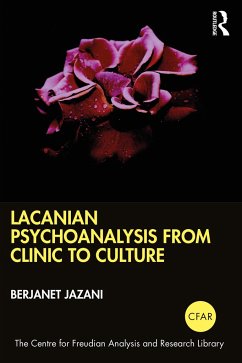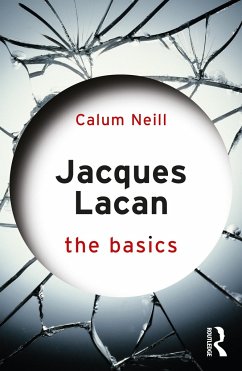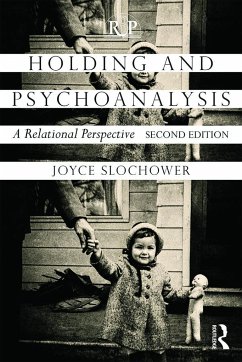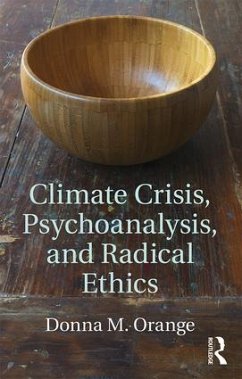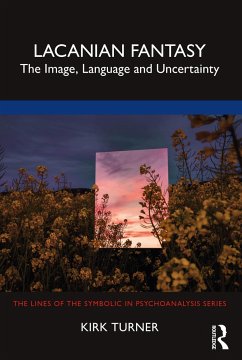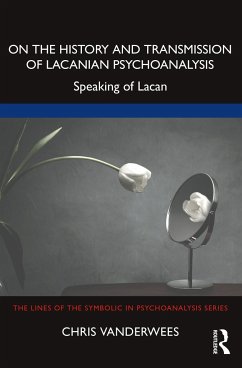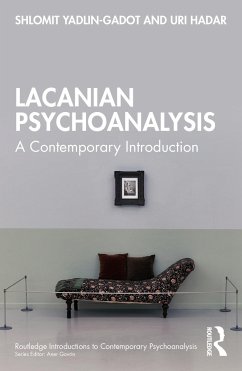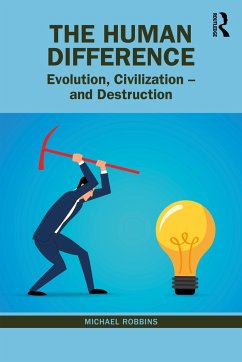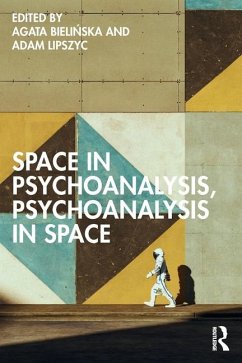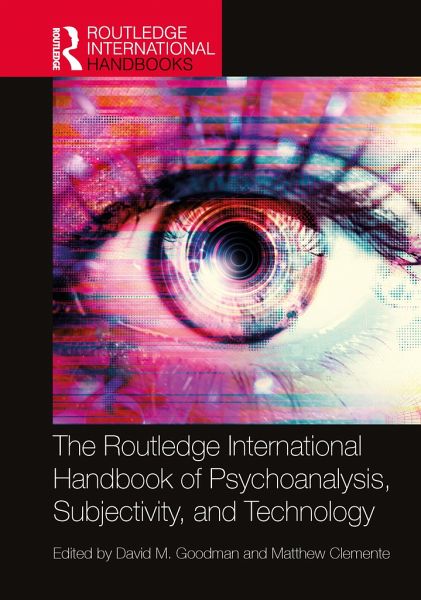
The Routledge International Handbook of Psychoanalysis, Subjectivity, and Technology
Versandkostenfrei!
Versandfertig in 6-10 Tagen
234,99 €
inkl. MwSt.
Weitere Ausgaben:

PAYBACK Punkte
117 °P sammeln!
The Routledge International Handbook of Psychoanalysis, Subjectivity, and Technology uniquely provides a comprehensive overview of human subjectivity in the technological age and how psychoanalysis can help us better understand human life.Presented in five parts, David M. Goodman and Matthew Clemente collaborate with an international community of scholars and practitioners to consider how psychoanalytic formulations can be brought to bear on the impact technology has had on the facets of human subjectivity. Chapters examine how technology is reshaping our understanding of what it means to be a...
The Routledge International Handbook of Psychoanalysis, Subjectivity, and Technology uniquely provides a comprehensive overview of human subjectivity in the technological age and how psychoanalysis can help us better understand human life.
Presented in five parts, David M. Goodman and Matthew Clemente collaborate with an international community of scholars and practitioners to consider how psychoanalytic formulations can be brought to bear on the impact technology has had on the facets of human subjectivity. Chapters examine how technology is reshaping our understanding of what it means to be a human subject, through embodiment, intimacy, porn, political motivation, mortality, communication, interpersonal exchange, thought, attention, responsibility, vulnerability, and more.
Filled with thought-provoking and nuanced chapters, the contributors approach technology from a diverse range of entry points but all engage through the lens of psychoanalytic theory, practice, and thought.
This book is essential for academics and students of psychoanalysis, philosophy, ethics, media, liberal arts, social work, and bioethics. With the inclusion of timely chapters on the coronavirus pandemic and teletherapy, psychoanalysts in practice and training as well as other mental health practitioners will also find this book an invaluable resource.
Presented in five parts, David M. Goodman and Matthew Clemente collaborate with an international community of scholars and practitioners to consider how psychoanalytic formulations can be brought to bear on the impact technology has had on the facets of human subjectivity. Chapters examine how technology is reshaping our understanding of what it means to be a human subject, through embodiment, intimacy, porn, political motivation, mortality, communication, interpersonal exchange, thought, attention, responsibility, vulnerability, and more.
Filled with thought-provoking and nuanced chapters, the contributors approach technology from a diverse range of entry points but all engage through the lens of psychoanalytic theory, practice, and thought.
This book is essential for academics and students of psychoanalysis, philosophy, ethics, media, liberal arts, social work, and bioethics. With the inclusion of timely chapters on the coronavirus pandemic and teletherapy, psychoanalysts in practice and training as well as other mental health practitioners will also find this book an invaluable resource.





